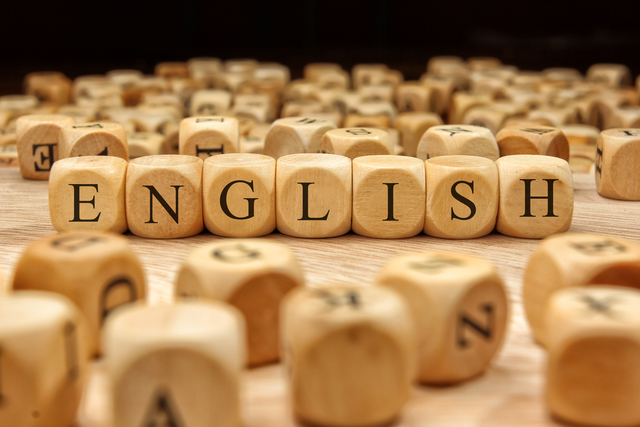As the English language evolves over time, different controversial grammar rules are popping up. Variations on rules exist on both sides of the Atlantic, not to mention over in Oceania, so it’s easy to see how globalization is playing a part in the changes of the English language.
There are all kinds of archaic rules and interesting facts about English language that no one sticks to even though they should, and there are plenty of new sentence structures that are catching on and quickly becoming new additions to the rules. Let’s argue for and against some of the most interesting examples.
Some Weird Grammar Rules to Remember

Image credit: Shutterstock
There are no two ways about it: English grammar is weird. That’s not always such a bad thing, though, and it’s really what makes learning a language so interesting. Consider these weird grammar rules and you’ll soon fall in love with them despite their difficulty.
Some of the strangest rules have to do with punctuation usage and it’s important that you get them right if you want to make your intended meaning clear, learn about how to avoid plagiarism UK to know more about it. It might be true that English grammar is weird but that’s no excuse.
- Everyone seems to have an opinion on the use of the Oxford comma: This particular usage of the comma, in this case, refers to when it’s used at the end of a list before the conjunction. There never seems to be a middle ground on this controversial usage: people either demand that you use it or they flat out deny that it’s a reasonable thing to do with a comma at all.
- Double negatives are quite normal in many languages, but English is supposed to be the exception: That is unless you’re one of the many millions of native speakers who use double negatives all the time. It often spills over into the sociological arena as well, as certain groups of people are more prone to this pattern of speech than others. Strictly speaking, you should stick to avoiding double negatives.

- So many people believe that it’s an error to start a sentence with a conjunction: It’s taught to pretty much every schoolchild. In actual fact, you’ll see plenty of conjunctions at the start of sentences when you check the work of the greatest maverick writers and the strictest grammar obsessive so alike.
- The whole point of a paragraph is to express a single idea in isolation from the rest of the text: But some people think that you should conform to a certain length or number of sentences. In fact, if you only need a one sentence to express this idea, you’re under no obligation to waffle on just to satisfy some false rule.
- Some people believe that you shouldn’t end your sentences with a preposition: However, it’s frequently the case that the meaning of a sentence is clearest when structured so that the preposition is at the end. You’ll find native speakers doing it all the time and you’ll even find it happening in the finest classic novels ever to have been written.
- The rule about not splitting infinitives was an arbitrary rule devised by one man in the 19th century: And it seems to have stuck in people’s heads. This is despite the fact that even Shakespeare dabbled in the use of split infinitives from time to time. Those who speak English as their mother tongue do this all the time and no one even notices, and if it’s good enough for The Bard, it’s good enough for the rest of us.
- A commonly misused couple of words both come from the infinitive “to hang”: It’s not so much controversial, but rather it’s just a little something that many people don’t realize. You should use the past tense “hung” for pretty much everything except when you’re talking about the antiquated method of capital punishment whereby offenders were “hanged”. No one will hang you for messing up this fine distinction though.
- Here’s another problem with punctuation, and it’s one of many that separates British English from its American counterpart: It’s the controversial use of punctuation within quotation marks. Going along with the general idea that British English likes to finishes sentences with a period or an equivalent final punctuation mark, you’ll see that people in the UK will tend to put their question marks outside of any quotation marks. Americans, however, choose to place them within any quotation even at the end of a sentence.
- Yet another punctuation issue is the use of the apostrophe and the letter “S” for possessives: Whether it’s King James’ Bible or King James’s Bible is entirely up to you. It might be that you really annoy someone but you can’t please all the people all of the time. Both options are considered correct in different places so it’s probably not worth worrying about too much.
- One of the most commonly found mistakes has to do with a remnant of the infected Old English: It’s the big debate between “who” and “whom”. The equivalent problem doesn’t really exist in any other widely spoken languages as they have retained the case systems which spawned it. In case you were wondering, “who” is the subjective pronoun whereas “whom” is used in the objective case or as the object of the prepositional case.








